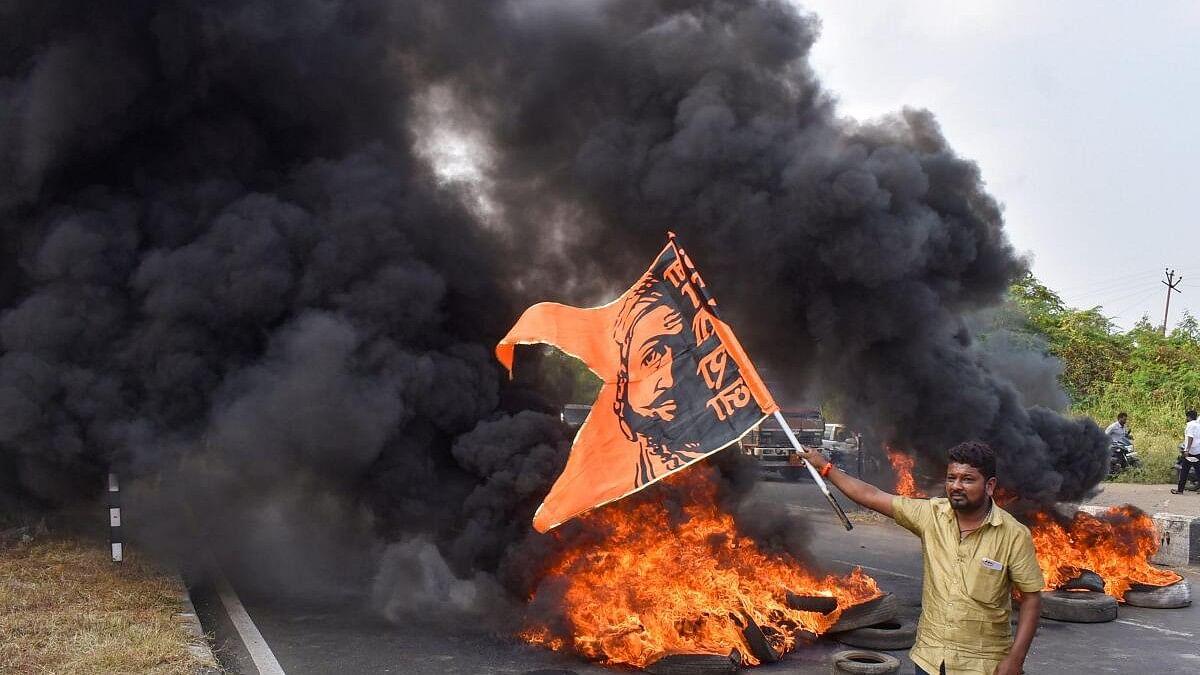
Maratha Kranti Morcha activists burn tyres and other inflamable items during a protest on Pune-Solapur Highway to press for Maratha reservation, in Solapur.
Credit: PTI Photo
It is clear that the resurgence of the agitation for reservation for the Maratha community is politically timed. The 2024 Lok Sabha elections are in sight and Maharashtra has an uncertain political climate now. The protests are spreading and have taken a violent turn. Homes of politicians have been attacked and public property has been vandalised. A leader of the Maratha Kranti Morcha (MKM), Manoj Jarange-Patil, who sat on a fast unto death, has become the face of the agitation. There are bandhs and curbs and ban orders in some parts of the state. The agitators want immediate acceptance of their demand but the Eknath Shinde government has asked for time to work out a solution.
Maharashtra has been here before. There have been agitations by the Maratha community for reservation in the past, and governments have formulated schemes for that. None of them found legal sanction. The demand is for the community to be recognised as an OBC (Other Backward Class) so that it will be eligible for reservation. The Congress-NCP government of Prithviraj Chavan promulgated an ordinance in 2014 providing 16% reservation for the community. It got stuck in the Bombay High Court and the Supreme Court. The BJP-Shiv Sena government of Devendra Fadnavis made a law providing 12% reservation in education and 13% in jobs for the community in 2018. It was struck down by the Supreme Court in 2021 because it breached the 50% ceiling for reservation prescribed in the Indra Sawhney case and, moreover, the data presented to prove the educational and economic backwardness of the community actually “proved that the Marathas are not socially and educationally backward”.
It is clear that it is not possible to provide quotas for the Maratha community in the present framework of the reservation scheme. The state government has said that it is considering two proposals. One is to issue Kunbi caste certificates to Marathas from the Marathwada region, which will make them eligible for reservations. The government has started issuing such certificates. The legality of the decision is not clear. In any case, the leaders of the agitation have rejected it and demanded reservation for all Marathas. Other OBC groups are unlikely to accept sharing of their reservation quota with the Marathas with Kunbi certificates. Another proposal is to prepare fresh data about the socio-economic status of the community and file a curative petition in the Supreme Court. A fresh report on the community’s socio-economic status is likely to be questioned in the absence of fresh census data. Will the Shinde government conduct a caste census to obtain the relevant data? The Maratha reservation issue is unlikely to have an easy and early solution.